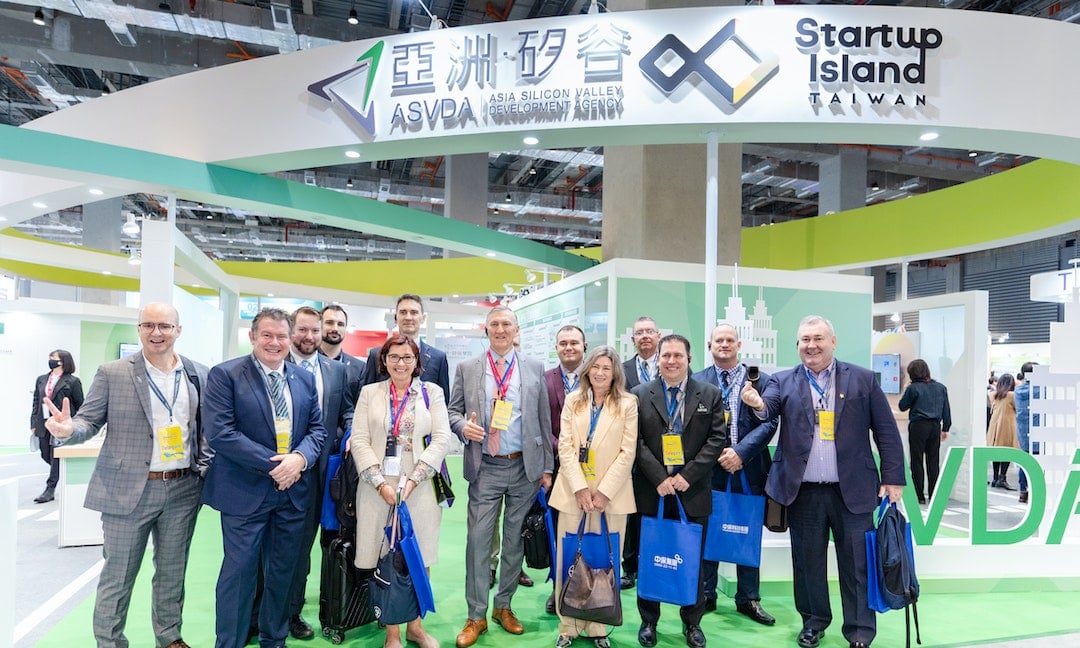
ASVDP 2.0 is an important vehicle through which the government can facilitate the development and growth of the IoT sector while enhancing the innovation and entrepreneurship ecosystem. The initiative was first launched some 7 years ago and has driven the sector's output value to new heights, reaching NT$2 trillion for 2022. The program has also led to the creation of multiple IoT startups which went on to develop many of the smart city applications. The release to date of 249 smart city application solutions and the successful deployment of over 88 smart systems in other countries and regions are testament to the initiative's success.
The exhibition at Asia Silicon Valley Theme Pavilion themed "Accelerating Green Transformation with Digital Innovation for a New Sustainable Future" tells the story of how the policies that support smart cities and zero emissions led to the founding of the entrepreneurial startups. Exhibitors include many of the companies that had been most successful including several that have attracted international attention. To cite a few examples, Quadlink Technology's Aquadlink Smart Monitoring System has been installed in 8 counties and cities across Taiwan, including Yunlin, Chiayi, and Tainan, as well as exported to Indonesia, Brunei and the Philippines. iStaging's naked 3D technology can be used with multiple types of hardware, offering shopping mall visitors an immersive AR/VR experience. The technology has already been successfully deployed by such high-end brands as LVMH, Richemont and L'Oreal.
The pandemic has proven to be a huge catalyst for the acceleration in the development of AIoT and 5G, with the knock-on effect of delivering smart city solutions, as well as speeding up the digital transformation of many industries. HwaCom, another exhibitor, uses a 5G private network to deploy a VR/MR wind power virtual and real integrated simulation training system to upskill operators in the offshore wind power sector. ADE Technology has developed unobtrusive physiological data sensors that provide bedside behavior management services to frontline caregivers. Xile Technology's solution, in addition to supplying project progress management, ensures workplace safety through the deployment of AI to predict environmental hazards. The solution includes an early warning feature so that once the risk of a future fault is identified an operator can repair the fault well before it causes an accident or a stoppage. Finally, Jorjin has developed one of the first gateway tools to the metaverse: high-performance AR smart glasses that allow users to manage operations via an eye-tracking operation interface.
Applications that allow users to manage energy use and reduce carbon emissions have become a necessity in response to global warming and net-zero emission goals. Ubiik, a four-time winner of Taipower's smart meter tender, offers remote, low-power communication systems and cloud services that assist public utilities in their transition to a smart grid. 3Egreen has developed sensors that monitor and collect electricity usage data, helping businesses better understand and manage the carbon footprint of their equipment. Mbran Filtra, winner of the Innovation Awards at CES 2023, rolled out a series of microfiltration membranes that can be used in drinking water filtration, seawater desalination, wastewater treatment, and water reuse.
In addition, the theme pavilion teamed up with TianYen Technology to create an interactive experience zone using projection mapping to showcase the achievements of Asia Silicon Valley's smart city and smart country initiatives. The pavilion also presented ASVDA College, a platform for anyone seeking to advance their studies in AI, IoT, or digital technology.
「An Advertisement of Taiwan National Development Council」







